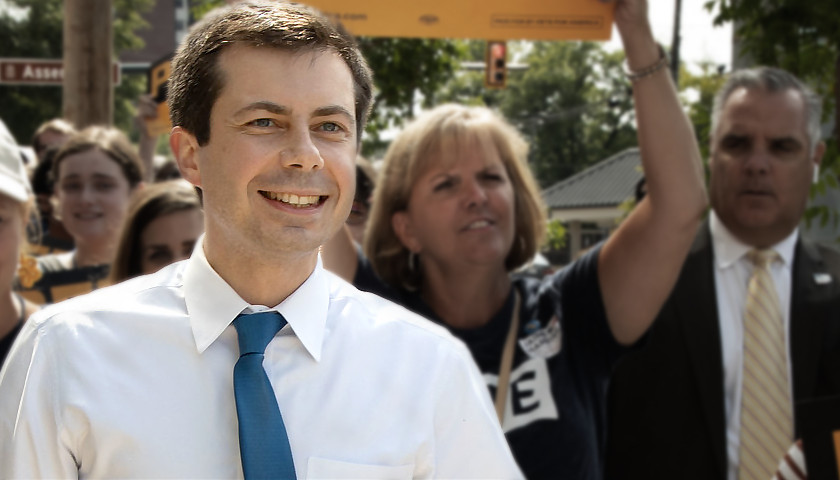by Bruce Walker
Michigan Attorney General Dana Nessel on Tuesday expressed her approval of former South Bend, Ind., Mayor Pete Buttigieg as a nominee to head up the U.S. Department of Transportation.
In anticipation of a successful transition, Joe Biden named Buttigieg for the cabinet post last week. Buttigieg has stated his opposition to the Enbridge Line 5 pipeline, which has been in operation through the Straits of Mackinac since 1953.
In a lawsuit filed in Ingham County Circuit Court, Nessel, Michigan Department of Natural Resources Director Dan Eichinger and Michigan Gov. Gretchen Whitmer are attempting to revoke and terminate Enbridge’s easement privileges with the state by May 2021.
In a countersuit filed in federal court in November, Enbridge argues the state lacks legal standing to wield such authority.
The company says such authority resides solely with the federal Pipeline and Hazardous Materials Safety Administration, which is an agency overseen by the USDOT.
If Buttigieg is confirmed as Secretary of the USDOT, Nessel said, “I feel very confident in what the federal government’s position is going to be as it pertains to Line 5.” She also stated Buttigieg’s nomination makes her “very confident” and “optimistic” the Whitmer administration will prevail in its legal fight against Enbridge.
“Attorney General Dana Nessel has made shutting down affordable, reliable, and secure energy supplies for the state of Michigan a key focus of her work over the past few years, so I’m not at all surprised that the nomination of Mayor Pete makes her ‘very confident’ and ‘optimistic,’” Mackinac Center for Public Policy Environmental Director Jason Hayes told The Center Square.
“Of course, the A.G. and Mayor Pete can relax through the holiday season – comfortable in the knowledge that their position and political power will protect them from layoffs, rising energy costs, and tight budgets,” Hayes said.
He added: “In contrast, Michigan’s rural populations will face a very different holiday season and new year. Forced to rely on government programs and stimulus payments to cover their rapidly growing costs for increasingly unreliable energy, these people face the very real prospect that the energy policies Nessel and Buttigieg are pushing will make 2021 even harder than 2020.”
Hayes warned that the desired timeline for decommissioning Line 5 poses many issues, including a current lack of viable alternatives to deliver natural gas and propane fuels to both peninsulas of the state.
Hayes said the Upper Peninsula Energy Task Force, established through an executive order by Whitmer in 2019, hasn’t yet progressed beyond a whiteboard phase for a replacement strategy if Line 5 is scuttled. He added the task force’s most recent meeting was conducted on Tuesday, Dec. 15, and the group hasn’t devised a workable substitute for Line 5.
Hayes also disagreed with Nessel’s assertions made on Tuesday that Enbridge’s warnings ceasing Line 5 operations would result in higher heating costs for Upper Peninsula residents are overblown.
Citing a study he co-authored with Isaac Orr, a policy fellow at Center for the American Experiment, Hayes said even a temporary closure of Line 5 would create price spikes and supply shortages in home-heating costs.
Furthermore, Hayes added, retrofitting homes in the Upper Peninsula from propane to natural gas or electricity could cost at least $3,500 per household, another $25,000 for new appliances, and increase energy costs by as much as $3,900 annually per household. Adding new infrastructure in the U.P. could cost hundreds of millions of dollars, he said.
– – –
Bruce Walker is a regional editor at The Center Square.
Photo “Pete Buttigieg” by Pete Buttigieg.





